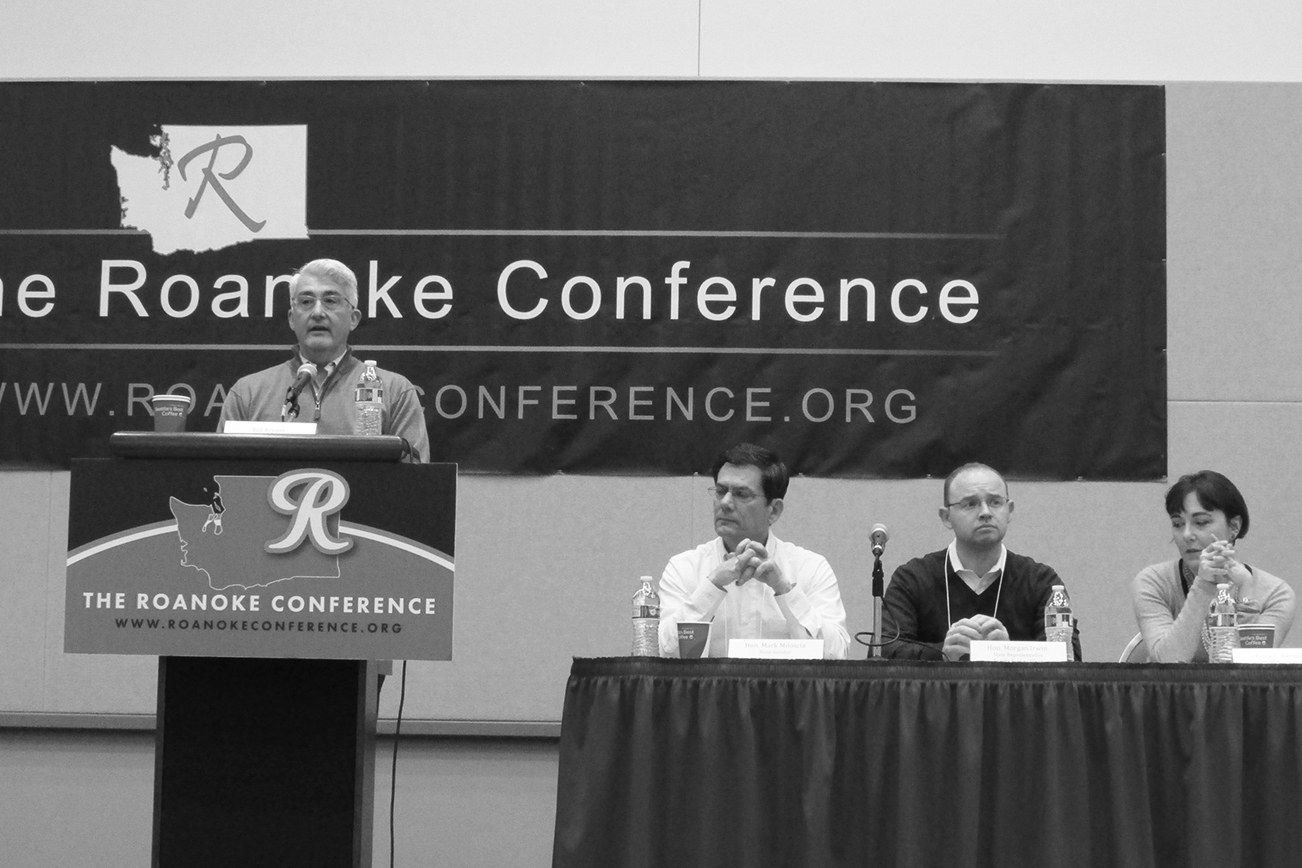By Scott D. Johnston
Several hundred Republican enthusiasts filled the Ocean Shores Convention Center over the weekend for the eighth annual Roanoke Conference. Begun in 2010, the event has grown to become a winter highlight for many Evergreen State conservatives.
“We received a lot of positive feedback from our attendees,” conference president Josh Dill said. “People were telling us they felt it was the best program we’ve put together in conference history … really well balanced with different issues and ideas.”
The Lake Tapps Republican activist added, “As always, it was great to be back in Ocean Shores and we’re definitely looking forward to being back next year. We love the hospitality of the people and the local businesses that are so good to us when we’re there.”
In evening keynote speeches, attendees heard from GOP media celebrities Jonah Goldberg, a National Review senior editor and fellow of the American Enterprise Institute, and Fox News contributor Rachel Campos-Duffy. Various state Republican leaders were in attendance and spoke at different points during the event that ran from Friday evening to Sunday afternoon.
The event also offered several panel presentations, round table discussions and breakout segments on topics including homelessness, transportation, the death penalty, religious freedom, education and a state income tax.
Saturday morning saw a panel discussion entitled, “Solving Homelessness: Challenges Facing Police, Lawmakers and Social Organizations Who Are Trying to Help.” The topic was moderated by Bill Bryant, who lost his bid to unseat incumbent Governor Jay Inslee last fall.
Bryant said Seattle-area programs intended to alleviate homelessness had actually done the opposite, and suggested a need to “redefine success of these programs”… to mean “how many people you remove from the street,” as opposed to how many people are provided some form of temporary housing.
State Senator Mark Miloscia, a Federal Way Republican, said he plans to introduce new homelessness legislation that “stresses accountability.” He offered no specifics.
A Seattle police officer who earlier this month was appointed to fill an election-created vacancy for State Representative from District 31, Morgan Irwin of Enumclaw shared his perspective that is based, in part, on his experiences patrolling and helping with cleanup of the Seattle homeless encampment known as “The Jungle.”
He noted different communities have experimented with different approaches to homelessness and advocated for empowering communities having “flexibility to handle their problems.”
Michael Jackson, development director with Auburn Youth Resources, agreed that more accountability is needed and suggested that some attempts to help the homeless ultimately fail because they offer assistance that is unsustainable in the long term, “Success is putting people in homes they can afford to stay in,” he said.
Seattle journalist Erica C. Barnett said that, despite the fact that in Washington “we spend a lot of money on homelessness … the fact is, we’re probably going to have to spend more because federal money is drying up.” She said a current “Rapid Re-housing” program in the Seattle area is not succeeding because it puts people into housing on a short-term basis, but doesn’t address how to get them to the point where they can afford to stay. The result, she said, is a return to homelessness in a few months. Nonetheless, she sees a significant need for more short-term shelters.
Miloscia said poor accountability means, “I don’t know what’s working at all because the information is not being collected properly.”
The moderator and all four panelists agreed at various points during the 80-minute presentation that mental health issues are among the core causes of the problem. All said more resources need to be found and applied in this area, but none offered any specifics.



